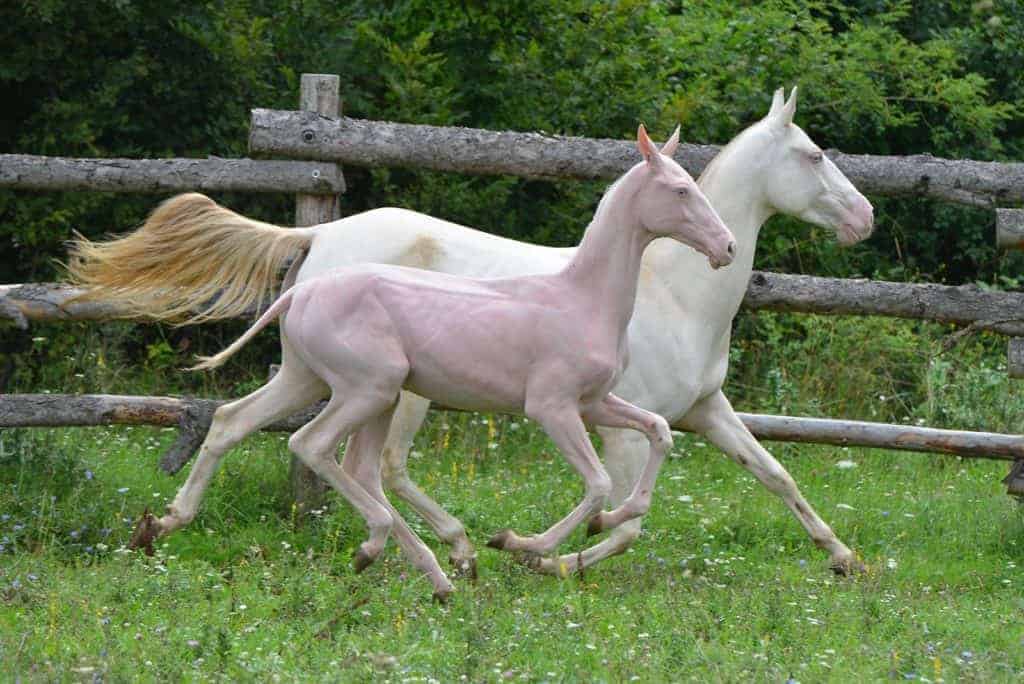Researchers Investigate Naked Foal Syndrome in Akhal-Tekes

In a groundbreaking study, an international group of researchers has uncovered the gene responsible for naked foal syndrome, which could help Akhal-Teke breeders eliminate the condition completely.
“We have shown that the naked foal syndrome in Akhal-Teke horses is related to a nonsense variant that we have found in a single gene on Chromosome 7, which appears to be unique to this breed among horses,” Anina Bauer, PhD student at the University of Bern, Switzerland, said at the 2017 Swiss Equine Research Day, held earlier this year in Avenches.
Mutations of the affected gene, identified as ST14, are also known to cause skin disorders in humans, said Bauer. “The association between ST14 and autosomal recessive congenital ichthyosis in humans strengthens our finding that this is the gene responsible for the condition in horses,” she said
Create a free account with TheHorse.com to view this content.
TheHorse.com is home to thousands of free articles about horse health care. In order to access some of our exclusive free content, you must be signed into TheHorse.com.
Start your free account today!
Already have an account?
and continue reading.

Written by:
Christa Lesté-Lasserre, MA
Related Articles
Stay on top of the most recent Horse Health news with















